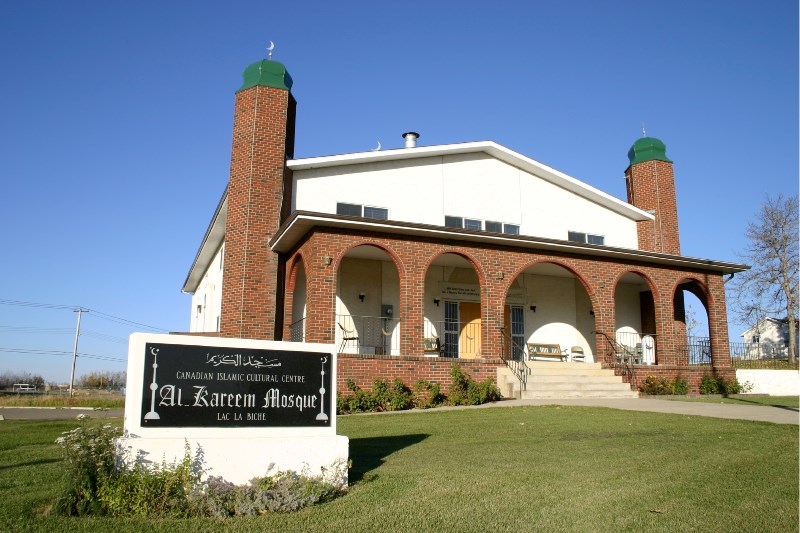On Friday, July 20, the blessed month of Ramadan began—as it does every year, on the first day of the ninth month of the Islamic lunar calendar. It was during this month, according to Islam, that Allah revealed the first verses of the holy Qur’an to Muhammad, wandering the desert near Mecca, meditating on his faith.
During Ramadan, Muslims fast from sunrise to sunset from all food and liquid—even water—for 30 days. And while for many in the western world on the outside looking in, it is this sacrifice that stands out as the daunting hallmark of Ramadan. But any Muslim will tell you the fasting is simply a means to a more glorious end—a cleansed soul in greater communion with Allah.
“This is a month based on self-discipline and renewal of faith,” said Badry Fyith, a member of the Alkareem Mosque in Lac La Biche and a former board member. Fyith stopped by the Post after taking a jog in the hot afternoon sun—with no chance of quenching his thirst until after sundown, which, especially during a northern Alberta summer, can entail a long wait.
“During your fasting time, you are focused on serving God. It’s about spiritual connection. It’s a time to reflect on yourself, where you’re at, and set some goals for yourself,” Fyith said. “Sure, the first few days are difficult, until you adjust. But it’s not about food—that’s a minimal part of it. Soon, you’re so focused on other things, you don’t even think about it.”
The Arabic word for fasting, “sawm” means, “to refrain,” and this is what Ramadan—one of the five pillars of Islam—is all about. It is essentially being a living example of “see no evil, hear no evil, speak no evil.” While fasting purifies the body of unwanted physical desires, the practising Muslim spends Ramadan purifying his mind of unkind or ungenerous thoughts, his lips of hurtful or malicious words and his heart of unworthy desires, while at the same time, performing charitable actions.
“It’s a time to become stronger and closer to God,” Fyith said. “To be empathetic of people who don’t have. This community is very, very generous in donations, especially during Ramadan, to the needy all over the world. In the community, a lot of people feed people they know of, or hear of, who are in need.”
A typical day during Ramadan starts before dawn with a pre-fast meal called Suhoor. As many Muslim men and women work eight hours a day or more, they then go through the day without another morsel of food or even a sip of water. Once sundown comes, they come together with family and friends to break their fast with a meal called Iftar.
“It’s a beautiful time,” Fyith said. “The whole family comes together, and we make a prayer. ‘We fasted for you God, and we thank you for giving us your food.’ After the breaking of the fast, we go to the mosque, every day and do a prayer. During the [one hour] prayer, we hear the rationales of why we fast, and the benefits, and about the life of Muhammad.”
While fasting during Ramadan is usually only practised by healthy adults and children who have entered puberty, many younger children are eager to attempt the sacrifice along with their parents and older brothers and sisters.
“For a lot of children, it’s a really exciting time,” Fyith explained. “It’s a challenge. They feel a sense of accomplishment afterwards—I did it!”
When asked if there were any favourite fast-breaking foods for the kids, Fyith chuckled.
“My kids put in orders at the end of the day—‘Dad, I want BBQ’d chicken’ the other one wants perogies, the other wants salmon with salad,” Fyith said, and described how he set about filling the orders. “Me?” he said smiling, “I wanted oatmeal.”
At the end of the 30 days of Ramadan comes the celebration of Eid, when the Muslim community comes together to feast and visit and pray—much like the celebration of Easter after the sacrifices of Lent in the Christian tradition.
“We all have room to grow,” Fyith said of Ramadan. “It’s a time for kindness, generosity and forgiveness. It’s a time to be really kind to yourself, your family and your neighbours, Muslim or non-Muslim.”



